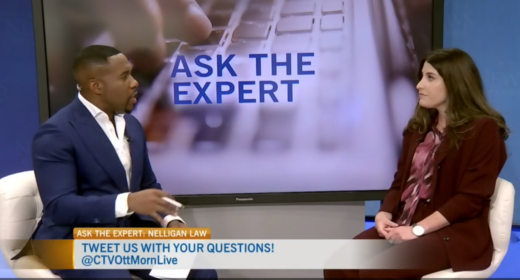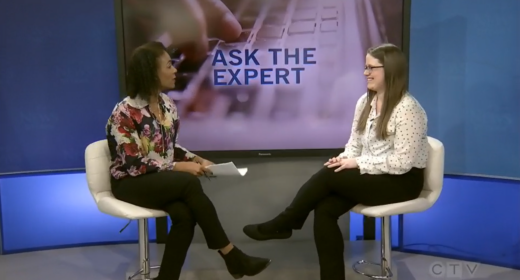Who should you appoint as your estate trustee? Spouse, children, other family, friends, professionals, trust companies? This article will explore the positive and the negative of each type of appointment.
An estate trustee is the person, or one of the people, who you name in your Will to take care of all of the things that you left undone during your life. In particular, the estate trustee (sometimes referred to as the executor) is appointed through your Will. It is the estate trustee’s responsibility to carry out the terms of your Will and ensure that your final wishes are respected. Picking an estate trustee is one of the most important decisions you will make when preparing your Will. Being an estate trustee is a hard job and it requires patience, sound judgement, tact, and empathy. Before you can decide who should be your estate trustee, you need to understand what the estate trustee will be doing for you after
your death.
General duties of an estate trustee
- Making proper funeral and burial arrangements. Contrary to what many people believe, these arrangements are
not made by a surviving spouse or other family member. - Determining that the Will appointing the estate trustee is the last Will of the deceased.
- Determining the names, addresses, and ages of the beneficiaries.
- Notifying the beneficiaries of their interests in the estate.
- Determining the nature and value of the assets of the deceased and compiling a detailed inventory that includes the
contents of the safety deposit boxes. - Determining what debts were owed at the time of death and arranging for payment.
- Hiring a lawyer to obtain advice with respect to the administration of the estate and applying to the Ontario Superior
Court of Justice for a Certificate of Appointment of Estate Trustee, if required. - Ensuring the property is protected (e.g., that real property has sufficient insurance and appropriate supervision).
- Contesting and/or settling any debts, the validity of which is in doubt.
- Opening an estate bank account.
- Preparing and filing the necessary tax returns in all relevant jurisdictions and paying any tax owing.
- Maintaining proper accounts.
- If required, providing the beneficiaries and the Court with an account of all dealings with the estate assets
during the term of the estate administration. - Setting up and administering any trusts established by the Will.
- Distributing the assets according to the terms of the Will and obtaining releases from the beneficiaries.
Who may be an estate trustee?
Any individual who is at least 18 years of age and is mentally capable may serve as an estate trustee. However, once this minimum criterion is met, other considerations should be taken into account. The potential estate trustee should not have a recent criminal record and should not have recently filed for bankruptcy. In other words, the person who becomes your estate trustee should not be tempted to abscond with your money.
Who should be your estate trustee?
The qualities to consider when choosing your estate trustee are availability, capability, sympathy, reliability, and financial responsibility.
Availability
It is preferable that the estate trustee live in the same city as you, or in a close geographical region, so that the work that needs to be done to administer your estate can be performed expeditiously and without undue expense or inconvenience. If the estate trustee does not live in the same province as the deceased, then the estate trustee might be required to provide security in the form of an administration bond. An administration bond is a form of security that protects the beneficiaries and creditors of the estate in the event of improper administration of the estate assets. The administration bond is normally twice the value of the estate being administered and the cost to purchase the administration bond may be deducted from the value of your estate assets.
Capability
The prospective estate trustee should be mentally capable of completing his or her duties and knowing when it is necessary to retain guidance from professionals (i.e.
lawyers, accountants, etc.). Also, the person should be younger than you and have a reasonable chance of outliving you.
Sympathetic
Depending on your family dynamics, you might want to choose an estate trustee who is sympathetic and to whom your heirs and beneficiaries can turn to for direction
and understanding.
Reliable
The prospective estate trustee should be reliable. Depending on your assets, your choice of estate trustee should not be based solely on friendship or affection. For example, if you have a business to be continued or sold upon your death, then being an estate trustee for your estate may call for business judgement in areas such as the realization of assets, dealing with insurance, or other financial decisions.
Financially Responsible
The estate trustee should be financially responsible. The prospective estate trustee will be responsible for managing your assets, and in some cases investing your assets. If the prospective estate trustee makes unsuitable investments, tails to pay the deceased’s unpaid income tax liability, or fails to act properly,then your estate trustee may be personally liable for their actions.
What about your spouse of children?
If your spouse is going to receive the bulk of your assets, then your spouse may be an excellent choice as estate trustee. If you think that your spouse will not be able to handle the responsibility because of grief, age, or any other reason, then choose someone else.
You may choose to appoint multiple estate trustees who will act together and share the responsibilities. However, before you name multiple people to be your estate trustee, you should be fairly certain that the people will be able to work and make decisions together. For example, many people want to name all of their children as estate trustees for the sake of equality and to prove that you don’t love one child more than the other. However, if during your lifetime your children fought like cats and dogs, then appointing all of your children as your estate trustees will be doing your estate a disservice if decisions cannot be made to administer your estate.
Remember, when choosing an estate trustee, the person should be available, capable, sympathetic, reliable, and financially responsible. Choose the child that you know will complete the work necessary to administer your estate.
Trust company or professional as estate trustee
You can also appoint a trust company or a professional as your estate trustee. There are advantages and disadvantages to appointing either a trust company or a professional. A trust company or professional may provide a higher level of experience in managing investments, estate accounting, and other estate administrative tasks, and may have greater resources than most individual estate trustees. A trust company also offers a permanent and impartial administration of the estate, which might be desirable if there are estate assets that will remain in trust for a lengthy period. On the other hand, trust companies or professionals are sometimes perceived to be inflexible and less responsive to personal needs than an individual estate trustee. In recent years, trust companies have become dissatisfied with the estate trustee’s fees allowed by the Ontario Superior Court of Justice. As a result, some trust companies decline to act in estates where the value of the assets is less than S200,000.
Is an estate trustee entitled to be paid?
Under the Trustee Act, an estate trustee is entitled to a fair and reasonable allowance for the “care, pains, trouble and time” spent in administering the estate. If the beneficiaries are all adults, then they can agree upon the terms of the compensation. If the estate accounts are audited, then the Ontario Superior Court of Justice may award compensation. The entitlement to compensation may also be specified in the Will.
Generally, an estate trustee is allowed 2 1/2 per cent of receipts (all value received by the estate, including assets as of the date of death), 2 1/2 per cent of the disbursements (all payments out of the estate whether to pay liabilities or to distribute to beneficiaries), plus two-fifths of one per cent of the average annual value of the assets as a care and management fee. The compensation received from acting as an estate trustee is taxable.
Regardless of who you think you would like to choose as your estate trustee, you should ask permission. Someone who has been asked in advance to fulfill this role is less likely to refuse to act as a trustee when required.
Marcia A. Green is an associate lawyer with the Ottawa law firm of Nelligan O’Brien Payne LLP (www.nelligan.ca) and a member of the Wills and Estates Practice Group.
[This article originally appeared in the May 2014 issue of Fifty-Five Plus Magazine.]


